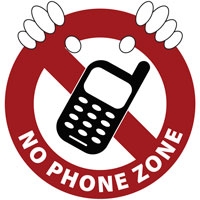Use of mobile devices at home for work purposes negatively impacts employees’ professional and personal life.
Time management was always one of the most valued traits of an efficient employee. Now it seems it has become even more important, with gadgets and mobile devices blurring away the boundaries between work and home. While on one hand technology has helped make work faster and flexible, allowing anytime anywhere delivery, it has also in some way fiddled with the exclusivity of family time or ‘away from work’ hours.
A research team at the University of Texas at Arlington in the US has just found out that using a mobile device at home for work purposes has negative implications, not only for the employees’ work life but also their spouses. Their report is called, ‘Your Job is Messing With Mine! The Impact of Mobile Device Use for Work during Family Time on the Spouse’s Work Life’. 344 married couples were surveyed, all of whom worked fulltime and used mobile devices or tablets at home for work purposes. The couples’ survey results showed that use of a mobile device during family time resulted in lower job satisfaction and lower job performance.

Pseudo espoused thought that the world will stop if one doesn’t work stretched hours, leads to carrying work home, which, in turn, eats away family time.
One of the researchers explains that it’s really no surprise that conflict is created when a spouse is using a mobile device at home. So, whether companies care or don’t care about employees being plugged in, they definitely need to know that the relationship tension created by their interaction with their employees during non-work hours ultimately leads to work-life trouble.
While the study may be based in the US, the situation is even grimmer in India, as most people here are workaholics or pretend to be so, because such is the culture in most organisations here.
Mangesh Bhide, technology HR-head, Reliance Jio Infocomm, says, “Anything in excess is harmful.” He explains that the pseudo espoused thought that the world will stop if one doesn’t work stretched hours, leads to carrying work home, which, in turn, eats away family time.
Going by the golden rule, ‘everything in moderation is always good,’ he says, “While mobile devices and other gadgets may have enhanced our work efficiency manifold, we need to use them wisely so as to ascertain that they don’t cross the thin line between work and personal time.”
Businesses have to think about accomplishing tasks more efficiently, while people are at work.
The research is also proof that extra time spent on mobile devices after work hours might not be worth it if the grief it causes results in productivity loss once the conflict is carried back to work.
After all, we are humans and our feelings and emotions influence our behaviour, both at home and at the workplace. Abdul Rasheed, chair of the Department of Management at the University of Texas says, “Businesses have to think about accomplishing tasks more efficiently, while people are at work.”
Kshitij Kashyap, senior director, human capital, Optum, says, “Use of mobile devices for work at home, after work, takes away the time for mindshare with family. Real conversations are then replaced by gadgets.”
He says that not only are Indians mostly workaholics, but our socio-cultural setup is such that our basic introduction to anyone has to include our occupation, designation, organisation, and so on. “We are judged by what we do and where we work, whereas, worldwide, people hesitate to talk about work in social gatherings.”

Indians are judged by what we do and where we work, whereas, worldwide, people hesitate to talk about work in social gatherings.
Coming back to effective time management, Kashyap is also of the view that while people in the US and Europe, or most other parts of the world respect their time, people here are rather confused. In the race to be seen as most productive, people consciously or subconsciously cross the boundaries between work and life. However, this becomes a vicious loop, which at some point hampers both their own and their spouse’s productivity.
Bhide suggests, “One should set clear work expectations with their boss and decide priorities beforehand, such that work doesn’t get affected and at the same time one’s family time also isn’t impacted.”
Transparent, open and meaningful conversations between an employee and a manager about work expectations and deliverables, effective time management and a mutual understanding around the importance of family time, is the only solution to avoiding the vicious loop. Lastly, as Bhide mentioned, ‘anything in excess is harmful’ – use of mobile devices in excess for work at home, may rather prove to be a bane than boon to work efficiency.



